Terramanglar
Location: Rua Expedito José Sousa Farias, Aranaú, Acaraú, CE, Brazil
Year: 2023
Stages: Preliminary Study
Area: 115,89 ha
Work themes: Ecosystem regeneration, Landscape management and conservation, Nature-based solutions (NbS), Green infrastructure, Ecological corridors
Typology: Private enterprise
Client: People Advisory and Participations
Collaborators: Def Architecture and Urbanism
Summary
Preparation of studies and projects for landscape management, ecological landscaping, and landscape planning for mixed-use real estate development in Acaraú-CE. The proposal focuses on the regeneration of degraded areas and the protection of important existing landscape typologies, such as fluvial-marine plains and dune fields.
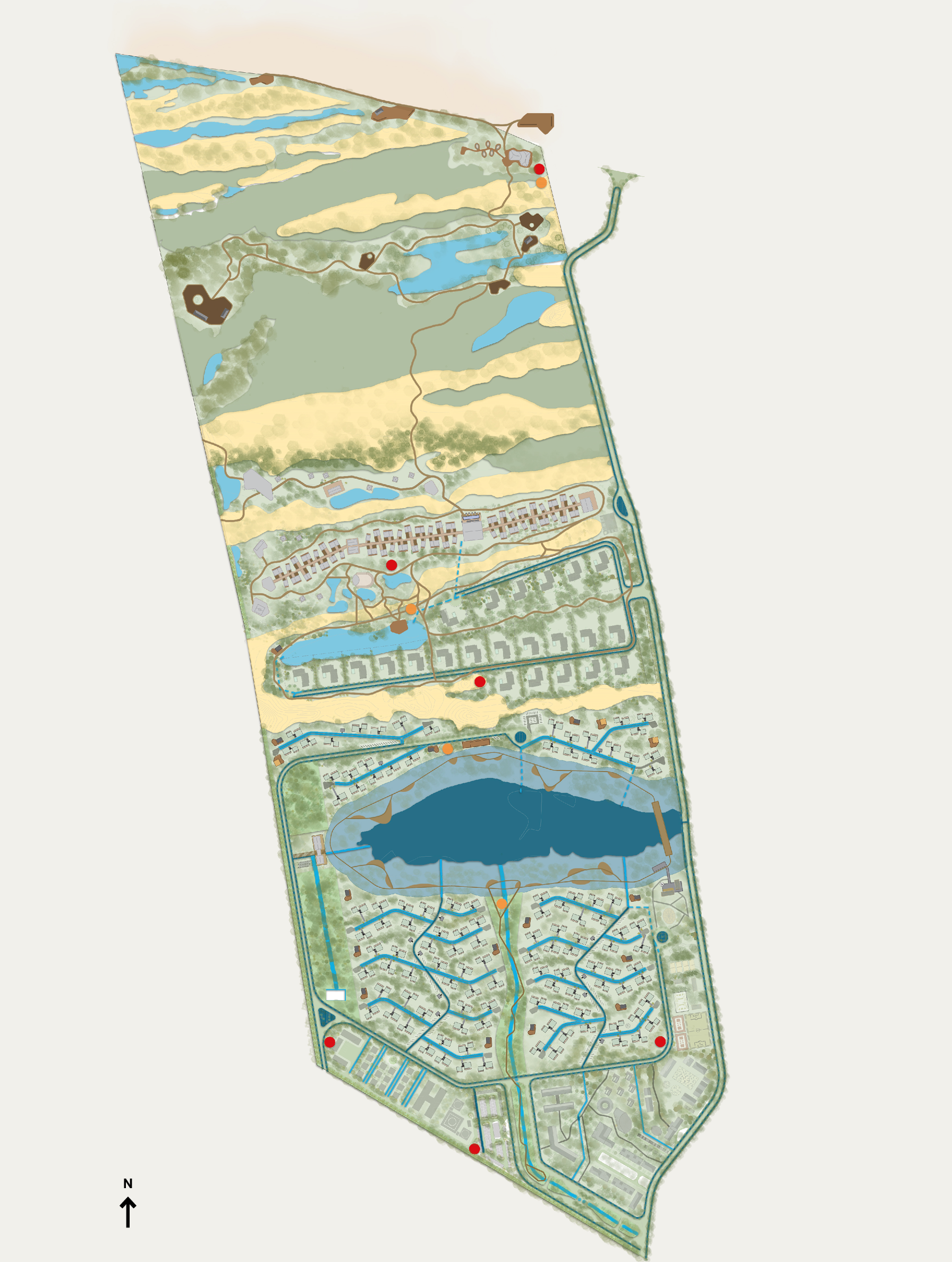
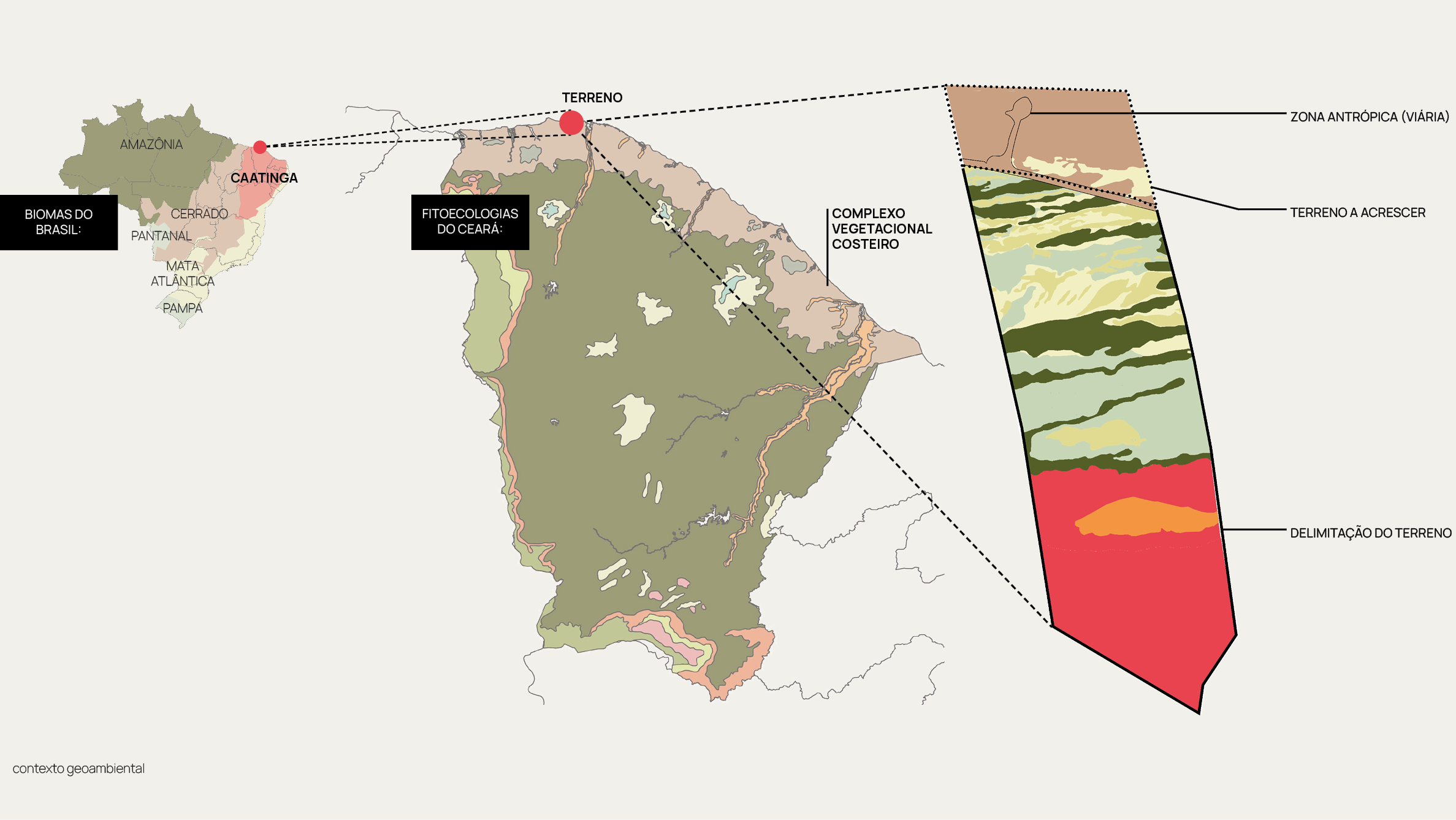
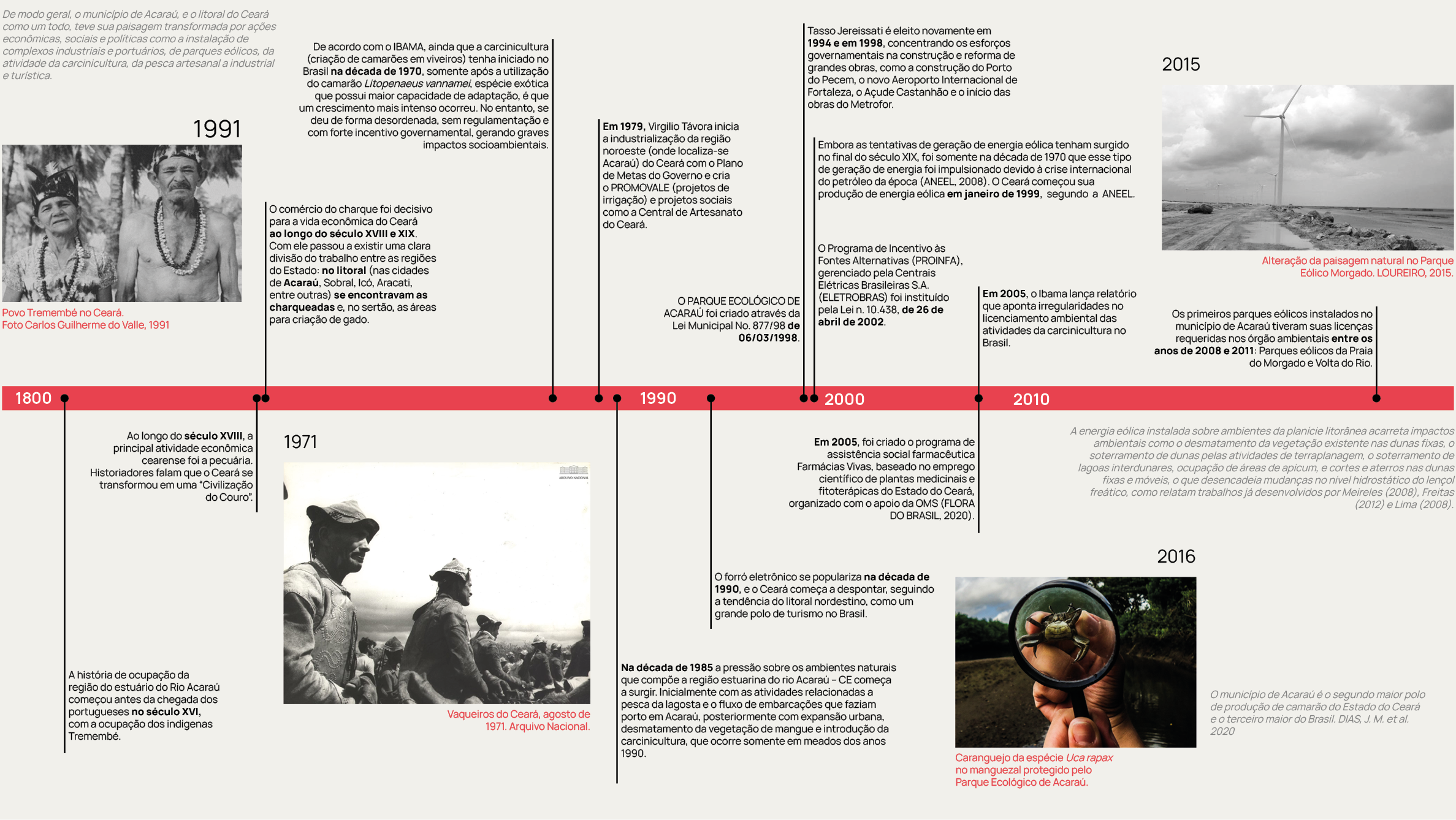
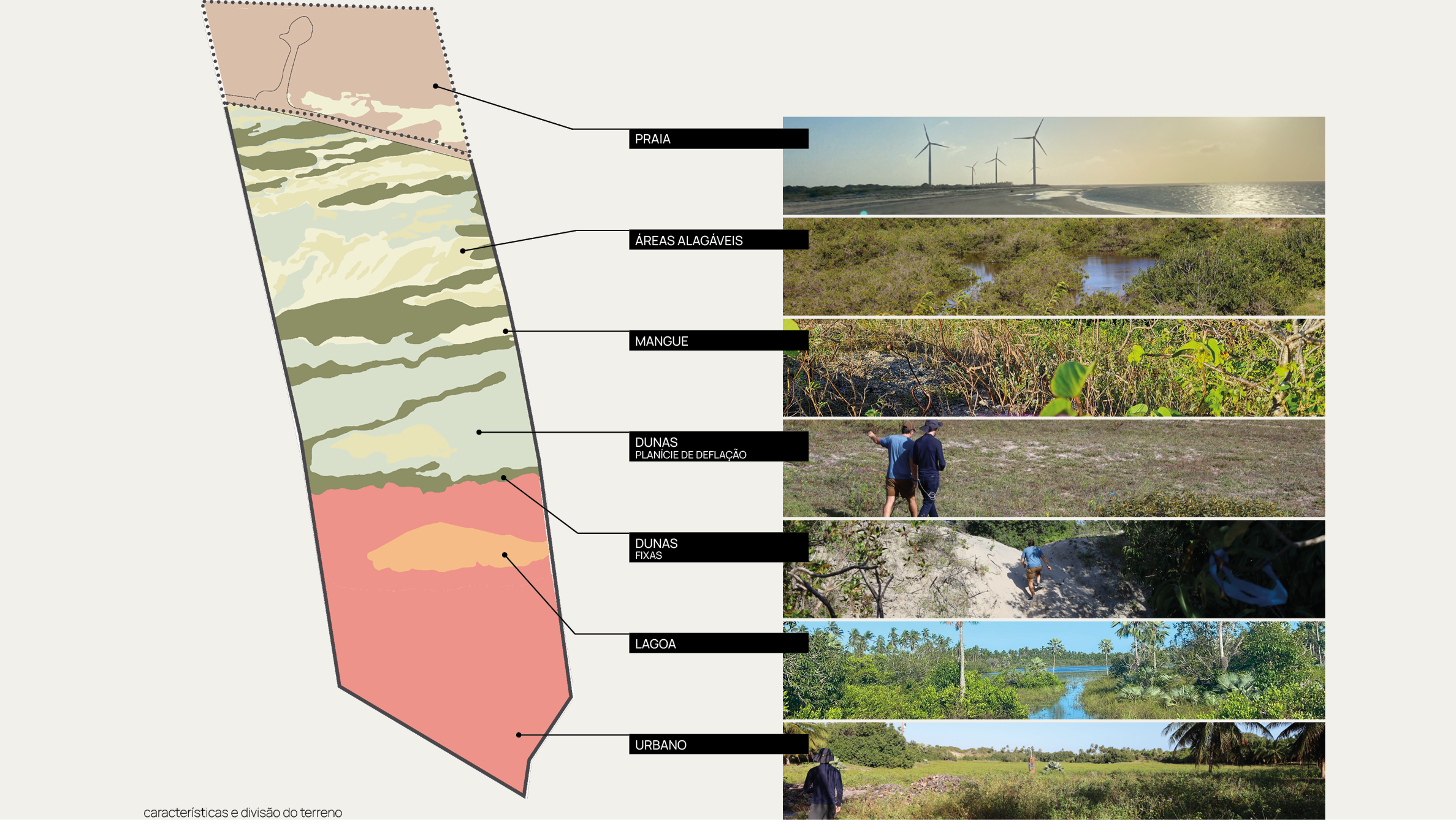
The Project
The project, in line with the urbanism proposals for the development, offers a range of services and proposals. This includes interaction and co-creation with the entire work team, a participatory process, and a timeline study to understand the changes in the local landscape. Additionally, it proposes an approach that dialogues with the macro context of the area and an in-depth environmental study in the abiotic, biotic, and cultural domains to ensure the project’s relevance and environmental safety concerning local fauna and flora.
Other key elements include the study of carbon sequestration and a focus on specific ecosystems such as coastal forests, estuaries, mangroves, and the planting of carnauba palms. Conceptual proposals for landscaping and territorial management are presented for each urban-landscape and natural typology of the site, as well as its edges, crossings, and infrastructures.
Additionally, green corridors are designed, conceptual technical solutions for different typologies are provided, and environmental and ecological goals to be monitored for evaluating the positive impact of the development are defined. Other aspects addressed include the valuation study of restoration for the area, aiming at the recovery of ecological functions, and the definition of environmental, conservation, and sustainability seals for the international recognition of the development’s environmental actions.
The project, in line with the urbanism proposals for the development, offers a range of services and proposals. This includes interaction and co-creation with the entire work team, a participatory process, and a timeline study to understand the changes in the local landscape. Additionally, it proposes an approach that dialogues with the macro context of the area and an in-depth environmental study in the abiotic, biotic, and cultural domains to ensure the project’s relevance and environmental safety concerning local fauna and flora.
Other key elements include the study of carbon sequestration and a focus on specific ecosystems such as coastal forests, estuaries, mangroves, and the planting of carnauba palms. Conceptual proposals for landscaping and territorial management are presented for each urban-landscape and natural typology of the site, as well as its edges, crossings, and infrastructures.
Additionally, green corridors are designed, conceptual technical solutions for different typologies are provided, and environmental and ecological goals to be monitored for evaluating the positive impact of the development are defined. Other aspects addressed include the valuation study of restoration for the area, aiming at the recovery of ecological functions, and the definition of environmental, conservation, and sustainability seals for the international recognition of the development’s environmental actions.
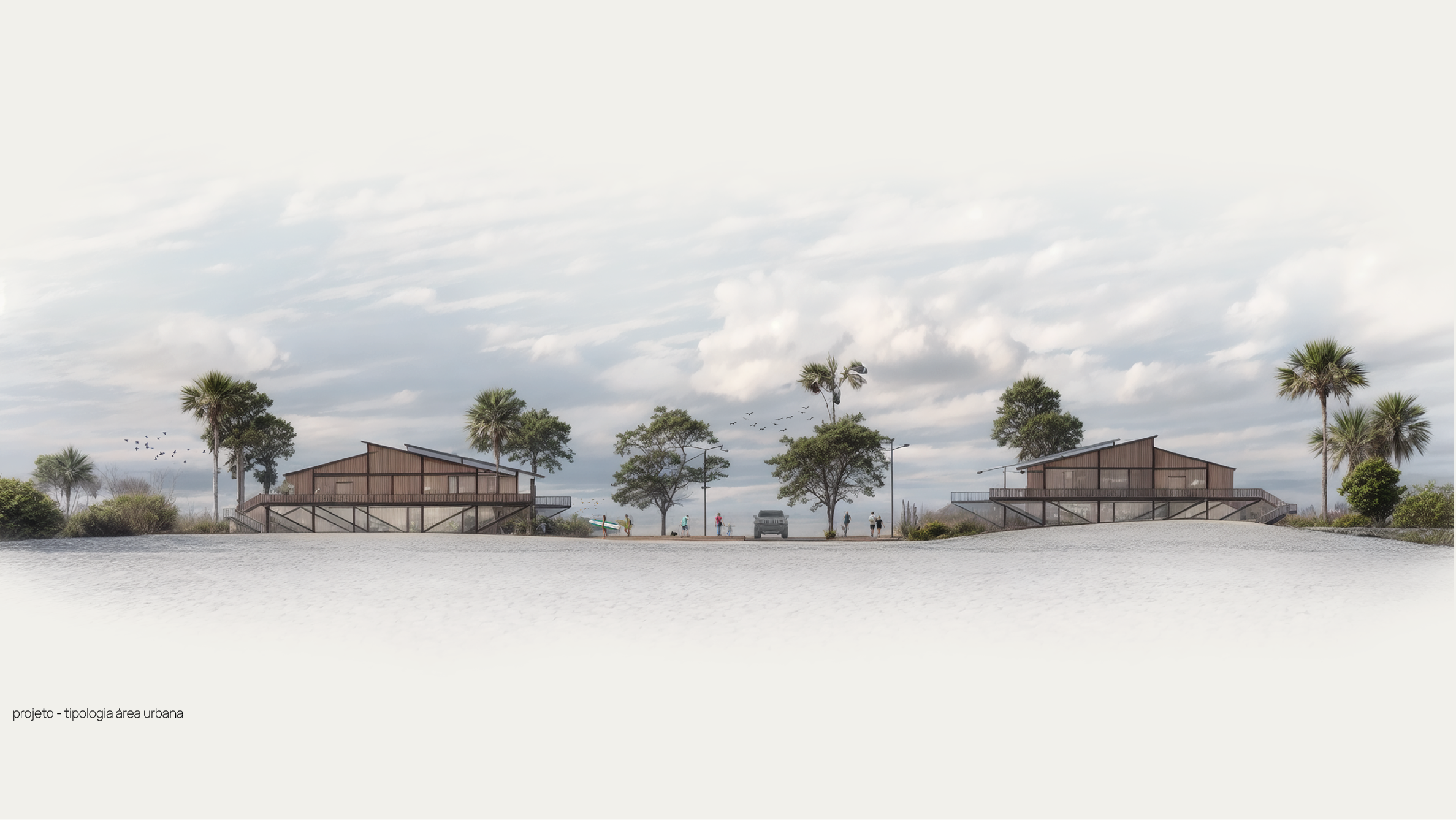
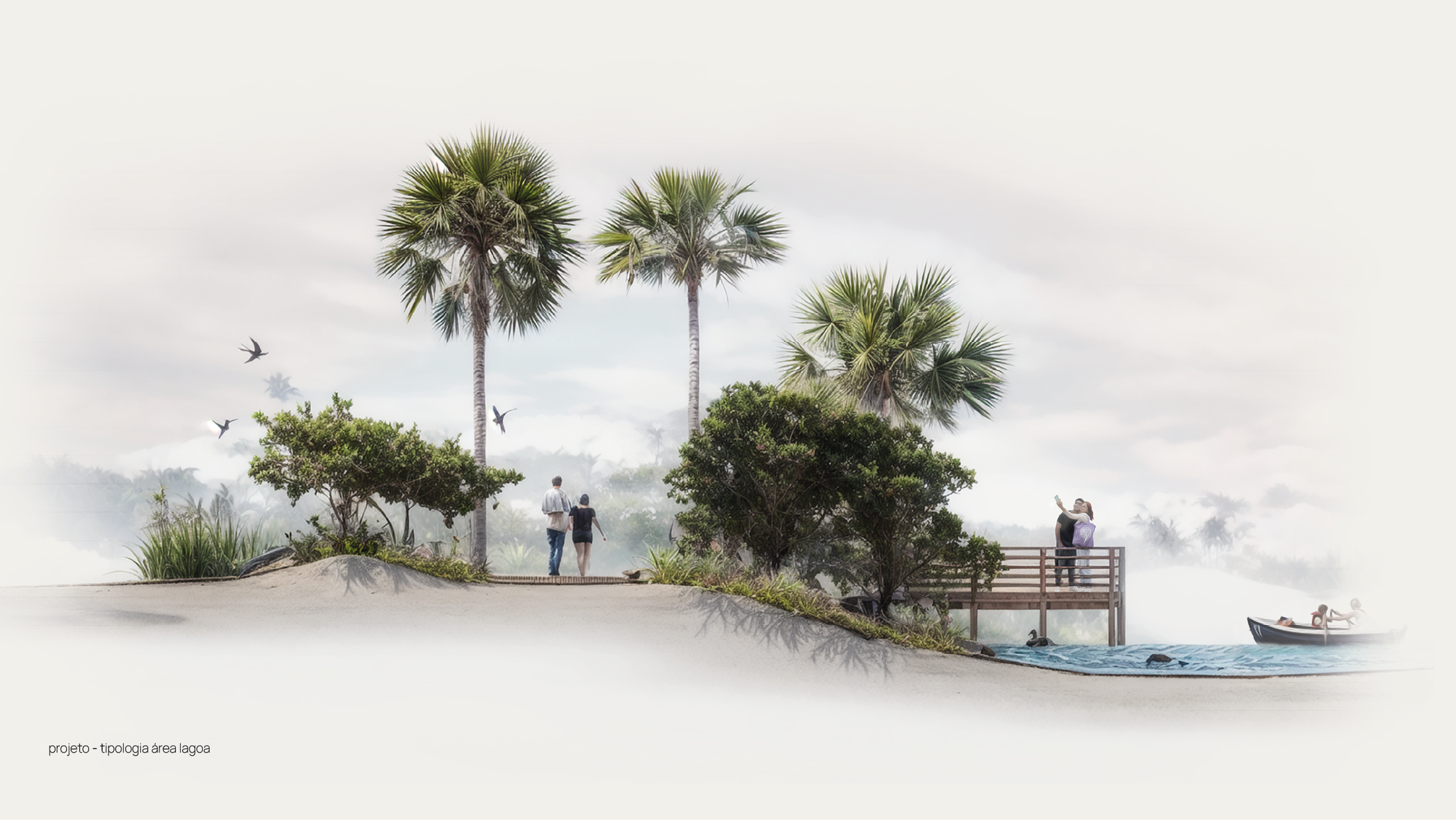
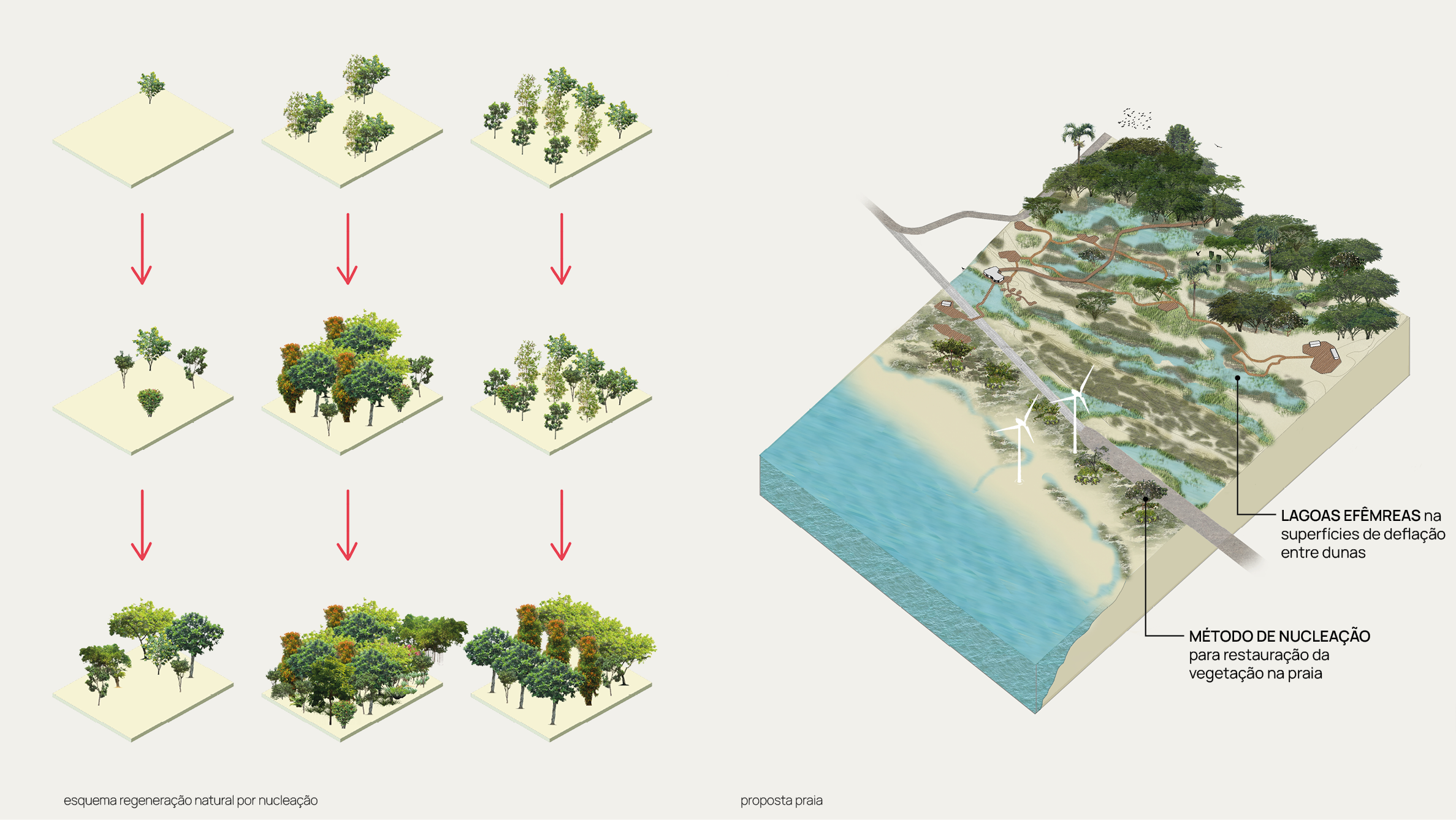
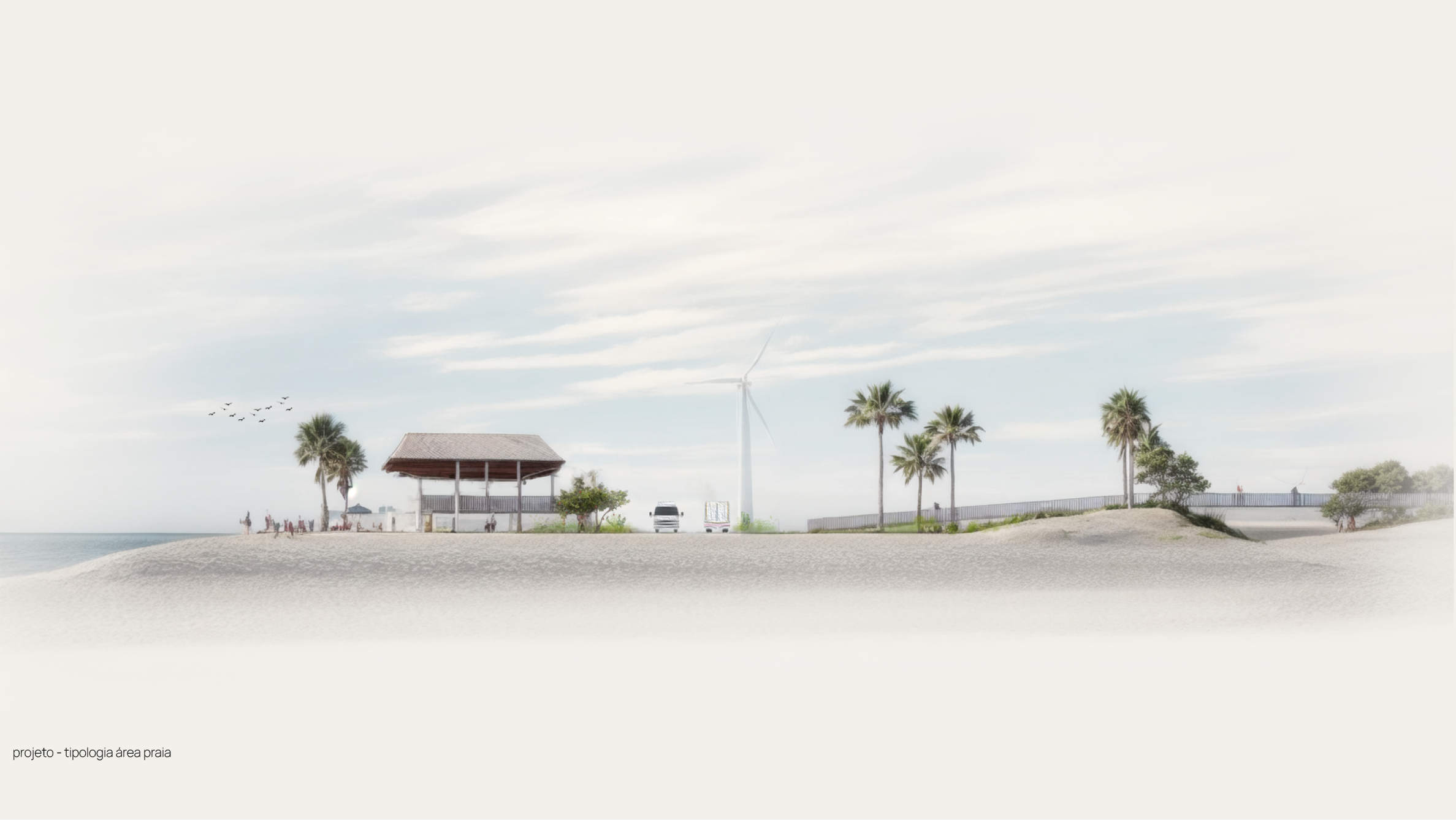
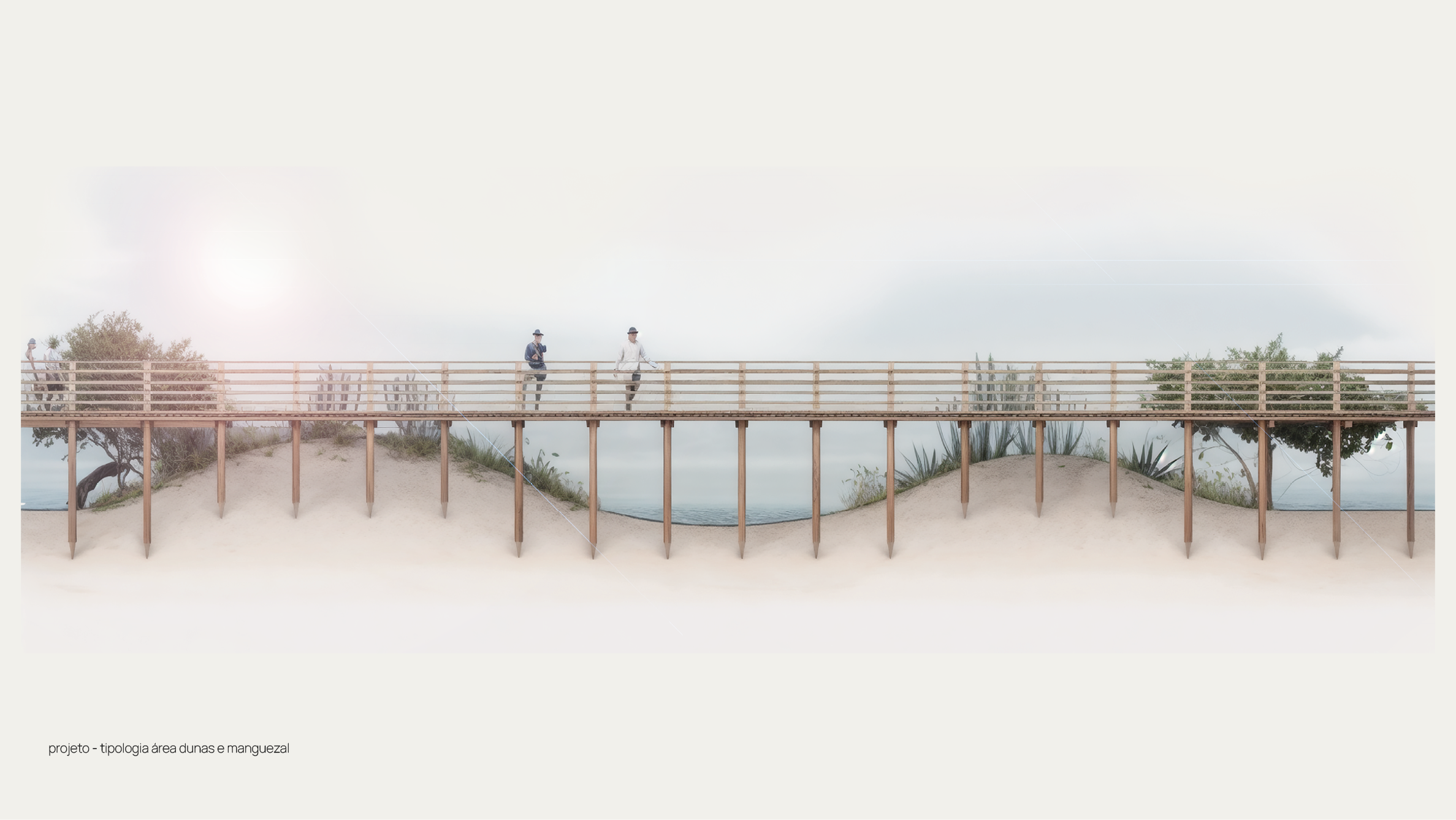
Goals and Results
Ecological restoration
25.000 m² mangrove restoration
Wind erosion control
34.000 m² fixing dunes by vegetation
Green corridors
30.000 m² restoration of marginal protection strip
Stormwater management
19,000 linear meters of bioswales
Biodiversity enrichment
Conservation and enrichment of the Evergreen Maritime Paludosa Forest, the Seasonal Subdeciduous Tropical Sclerophyllous Forest and the Mixed Dicotyle Palmáceae Forest
Food safety
Creation of semi-arid agroforestry zones
Leisure
5 areas of immersion in ecosystems and 3 km of trails